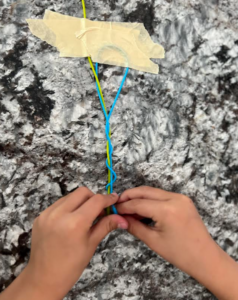Planning for Love
In the 2003 movie, Mona Lisa Smile, Maggie Gyllenhaal plays college student, Giselle Levy, who is having an affair with a married man. Kirsten Dunst plays a friend, Betty Warren, who berates and shames Giselle for her promiscuous behavior. But in the midst of Betty’s expressions of loathing, Giselle does not get angry or defensive. Instead, she sees Betty’s need for love.
From the moment we saw the movie, we wondered how Giselle did that: How did Giselle avoid defensiveness? How did she know that Betty’s anger was not about her? https://youtu.be/6zjqv_aK_m4
As it turns out, unconditional love is gratifying. In fact, practicing it activates reward centers in the brain, releasing dopamine. The alternative, of course, is retributive anger. In The Heartmath Solution, Doc Childre and Howard Martin describe the disequilibrium we create for our hearts and other vital organs when we are angry or stressed, which can lead to bone loss, reductions in muscle mass, memory impairment, the destruction of brain cells, weight gain, heart disease, and more. Childre and Howard define stress as:
… the body and mind’s response to any pressure that disrupts their normal balance. It occurs when our perceptions of events don’t meet our expectations and we don’t manage our reaction to the disappointment. (p. 55)
So, we should choose love, if for no other reason, out of self-interest.
Now imagine that Giselle had responded angrily to Betty in the scene from Mona Lisa Smile. It is likely that a shouting match would have ensued and neither of them would have gotten what they needed. (We realize this is a hypothetical scenario involving fictitious characters, but suspend disbelief with us for just a minute.) Instead, Giselle chose to love Betty unconditionally, which gave her a dopamine reward and also helped Betty, who had momentarily become the small version of herself, step back into the loving person she really was.
But how did Giselle do that? Well, she knew herself. Giselle knew she wasn’t a whore, and no amount of Betty saying it was so would make it true. This is powerful, friends. Giselle knew and loved herself so much that Betty could not insult her.
And what does this have to do with teaching? In her blog post “What Happened When I Committed to Loving My Students Unconditionally,” Kyle Redford writes about her decision to see student “misbehaviors” as manifestations of their smaller selves, not definitions of their core beings. She persists in seeing their true Selves, even when those higher Selves are camouflaged by anger or fear. Redford writes, “I wanted my love for my students to be super-resilient and a little bit blind … . I wanted a love that could embrace unappealing characteristics and behaviors with humor, tranquility, and curiosity. It would not be transactional or affected by my students’ daily or cumulative decisions. It would accept that they would all disappoint me at various times, some more than others. My disappointment would simply inform my work, not soil it.” Redford enlisted support from her husband, who kept her accountable as she dedicated a year to, what she referred to as, a “Love Plan.” You can read about the students’ amazing response to her love.
We would like to suggest that, enacting a “Love Plan” would not only bring out the best in your students (or your children, your mate, your colleagues, etc.), but it would also make you happier. Talking about how children are broken or lost or bad is stressful. Loving them, even when they act in ways that make them seem unlovable, releases dopamine into your system, making you feel good. Who doesn’t want to feel good in life’s stressful moments?
So as you are thinking about your 2018-2019 school year, why not plan for love? Seriously. Make a plan.



No comments:
Post a Comment